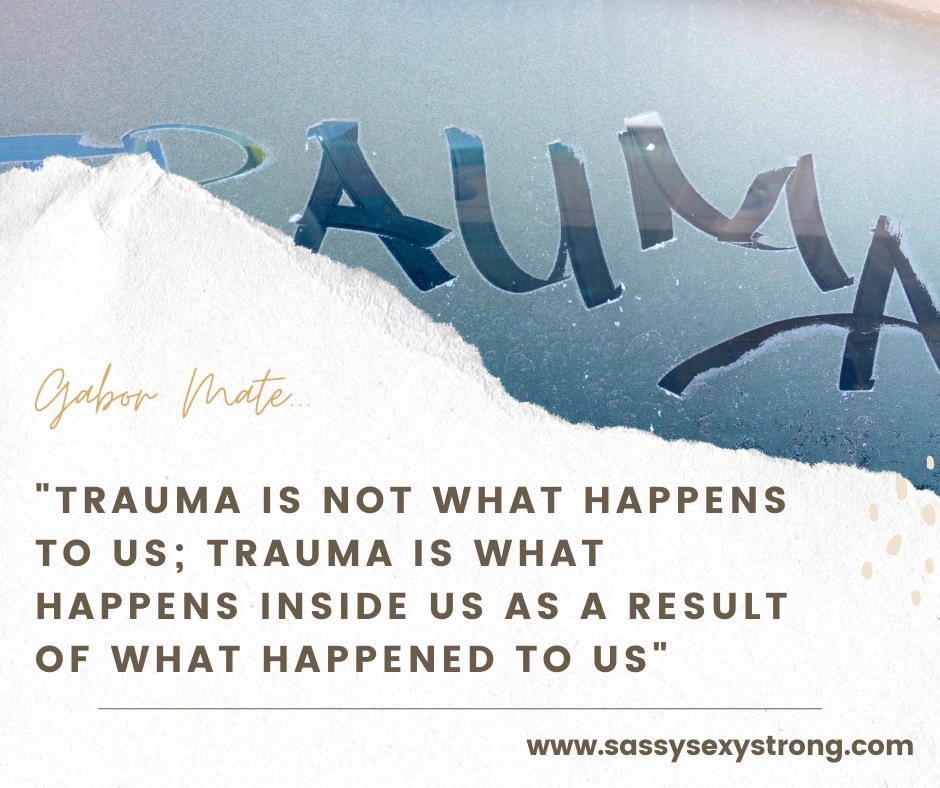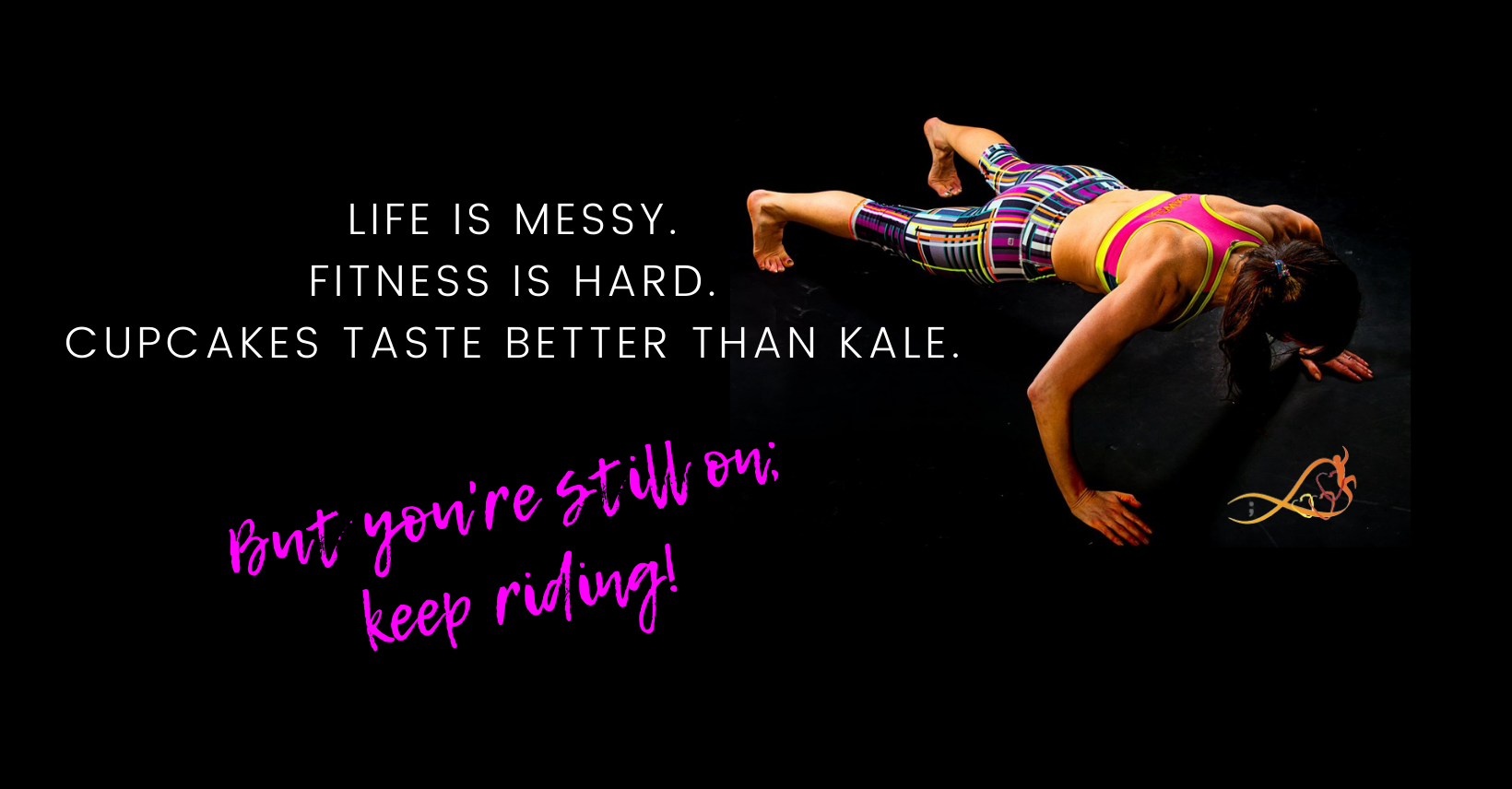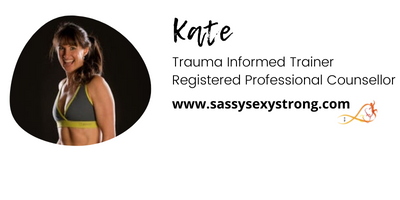
Ever heard of trauma-informed fitness? My guess would be no, but I have a better question…
Do you want to know about trauma-informed fitness?
If you clicked on this article, I’m gonna go with yes, lol.
This is a brand new field of research which is currently studying the effects of strength training on the brain and how that can be used alongside therapy for treatment of PTSD symptoms. But you don’t have to have PTSD to be suffering from the effects of trauma. And you can benefit from what we already know starting right now.
I’m Kate. I’m a trauma-informed personal trainer… and I’m not the only one. We’re a growing group of coaches who understand the unique challenges of working out when you don’t feel like yourself anymore.
I am also a registered professional counsellor and I can tell you that the benefits of having a counsellor and a trainer who work together for your benefit is priceless… but maybe not within reach for everyone.
So let me give you a quick breakdown: (pun intended – insert sheepish grin here)

Gabor Mate famously said:
“Trauma is not what happens to us; trauma is what happens inside us as a result of what happened to us.”
This means that what causes trauma is individual for everyone. And in case you are wondering, YES: the ongoing stress of a global pandemic can absolutely create trauma symptoms that impact your ability to exercise.
- Feeling like your energy tanks are always empty and your motivation level is stuck on ‘hahahaha’?
- Feeling like even when you do workout, you don’t get the same enjoyment from it anymore?
Congrats, you’re a normal human living through experiences that are impacting your nervous system in ways that don’t stop just because you think you ’should’ be able to ’suck it up and get over it’.
Or maybe you survived stuff that makes CoVid seem like a vacation and heard exercise helps improve mental health…Only you’re finding yourself getting really anxious when your heart rate gets going… So then you try those deep breaths everyone raves about and those make you feel panicky as well.
Congrats, you are also a normal human with a body that is doing its job exactly the way it was designed to do it. That job being to keep you alive.
PS – I know it’s working because you are here reading this article… which means you are also looking for solutions. You’re incredible!
See, trauma absolutely gets stored in our body, as well as our mind. And because it is in our body, physical movement can help heal our emotional wounds. The problem is that after a traumatic experience, physical movement can also be triggering… not to mention it can feel impossible to actually do.
Trauma-informed trainers understand this. They understand how your body can feel numb and unreadable after trauma…almost like it is disconnected from your mind. Trauma-informed trainers understand that certain movements can make you want to cry and closing your eyes during a stretch break might be terrifying.
Whatever feels ‘wrong’ about your body after trauma, we know it is normal… aaaand we understand that doesn’t make it any less frustrating for you.
We are here to support you in your recovery and in your journey to feeling safe in your body. This means a trauma-informed trainer will start with the premise that your body is normal, your body is good, and weight loss is not what we care about.
What we care about is you having autonomy over your fitness experience. We believe you are the expert of you and we are a guide that will walk beside you and support you.
My checklist of what to look for in a trauma-informed trainer (at a minimum):
- They feel safe and comforting to be around
- They do not pressure or shame you into changing behaviours
- They let you set the pace
- They do not call your obstacles ‘excuses’
- They do not try to convince you to do something you don’t feel ready to do
- They over the top respect physical consent and your ‘bubble’
- They help you identify your personal ‘danger and safety cues’
- They give you autonomy to choose what workout/exercise to do
- They spatially protect you in a gym setting
- They understand the complications of trauma on the brain and nervous system
Women hire me to feel sassy, sexy, and strong because most feel intimidated, lost, and fed up with workouts that were never designed for their body. I help them to love their body and their life at the same time.
Bottom line:

For more on trauma-informed fitness, connect with me on the socials (@kickasslifeproject) or visit my website (www.sassysexystrong.com).
For more details about the impact of trauma on the brain, check out this podcast episode.
Thanks for reading, you beautiful human. I wish you a kickass day!




